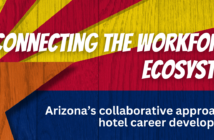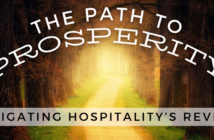Summer 2021 is in full swing. Traditionally a travel season for many, this year, people are especially eager and optimistic for an overdue “vaxication.” After being confined for the past year, travelers are restless and made ready by a culmination of factors: hoteliers’ commitment to restoring safety and confidence: global accessibility to COVID-19 vaccinations, and more relaxed travel restrictions.
vax·i·ca·tion \vak-sə-kā-shən\ noun: a combination of vaccine and vacation – has increased in use as the COVID-19 vaccine has become more available to the public. The word is used humorously to describe the post-vaccination travel plans people are making. – Merriam-Webster 2021
Wanderlust and reopenings are cascading across the globe, signaling a new day for the crippled tourism economy. Asia-Pacific is experiencing high domestic travel demand with searches for domestic travel doubling or tripling compared to 2019. In the U.S., hotels are experiencing the highest peak in weekly demand since the onset of COVID-19. The European Union announced reopening to fully vaccinated international travelers this summer, with countries like Greece, Spain, and Italy ready to welcome visitors.
Resurgence in travel promises a much-needed reprieve and renewed outlook for the future of business and personal livelihood. Despite many hotels and resorts enjoying a boost in bookings for celebratory vaxications, it’s not the time to skimp on health and safety considerations. With the ongoing threat of virus variants, and without vaccine approval for children, paired with an uptick in guests, properties need more support than ever in maintaining and furthering today’s recovery trajectory.
MEETING THE MOMENT
The COVID-19 pandemic has highlighted the critical role buildings play in supporting people’s health, safety, and well-being. Transmission of COVID-19 largely occurs within indoor and enclosed environments, where people  spend approximately 90% of their time. While longer-term design strategies are important in reducing the risks of infectious disease spread, there is an urgent need to meet optimum health and safety standards in existing buildings to protect building occupants from acute threats.
spend approximately 90% of their time. While longer-term design strategies are important in reducing the risks of infectious disease spread, there is an urgent need to meet optimum health and safety standards in existing buildings to protect building occupants from acute threats.
Most people haven’t traveled for months, at the very least. Hospitality companies are prioritizing efforts to restore confidence and address health, wellness, and safety concerns. To instill confidence, organizations must take necessary steps to communicate on their best practices, not only that they’re being implemented, but what these mean for guests in their spaces.
There are many opportunities to incorporate and improve health, wellness, and safety measures that don’t include a major capital expenditure spend. Organizations can focus on areas of opportunity such as operational policies, maintenance protocols, emergency plans, and stakeholder engagement.
Cleaning and sanitization initiatives help address the spread of COVID-19 and many other infectious diseases through cleaning protocols and hand-washing promotion, with a focus on low-hazard cleaning products that reduce negative impacts on indoor air quality and the health of those performing cleaning duties.
 Air- and water-quality management interventions focus on reducing exposure to pathogens and infectious diseases, including COVID-19, by mitigating indoor air pollution, avoiding air stagnation, implementing proper maintenance and air filtration, and monitoring water quality. This is critical for hotel guests due to the high frequency of occupant turnarounds.
Air- and water-quality management interventions focus on reducing exposure to pathogens and infectious diseases, including COVID-19, by mitigating indoor air pollution, avoiding air stagnation, implementing proper maintenance and air filtration, and monitoring water quality. This is critical for hotel guests due to the high frequency of occupant turnarounds.
Emergency plans and preparedness are essential to ensuring organizations are equipped to immediately confront and recover from crises like the current COVID-19 pandemic, which spread to almost every continent within five months. Having these measures in place can slow the spread of infectious disease and minimize secondary mortality. Additionally, creating plans to support business continuity, remote-work readiness, and project re-entry after extended remote periods helps maintain business resilience and individual well-being during and after longer-lasting emergencies. This is even more essential for hotels to safeguard the health, safety, and long-term well-being of hotel staff and ensure a smooth return after emergency situations.
Care of guests AND staff. The COVID-19 pandemic has proven how the behaviors of one person can negatively impact others in severe ways, but interventions in the workplace can help address that. Organizations are encouraging individual actions that support the health and safety of all in a given space, including vaccinations, education on good health habits, paid sick leave, improving access to health care, and supporting smoking cessation.
THE LAST WORD
From living to working to leisure spaces, buildings where we spend most of our time are a primordial line of  defense for improving the state of our health, and it’s crucial now more than ever that we shift our approach to embrace this reality.
defense for improving the state of our health, and it’s crucial now more than ever that we shift our approach to embrace this reality.
In the short term, adopting measures designed to protect guests and staff from harm offers organizations a viable path for transitioning out of emergency-response mode. As we plan ahead for the future, these same improvements could provide a way for hotels and resorts to differentiate their proposition by putting human health and well-being at the very heart of their operation.
Allison Kim is a Senior Director at the International WELL Building Institute (IWBI). She works with global organizations to advance their environmental, social, and governance goals, to enhance building performance, and to improve human well-being at scale. To learn more, visit wellcertified.com/health-safety




